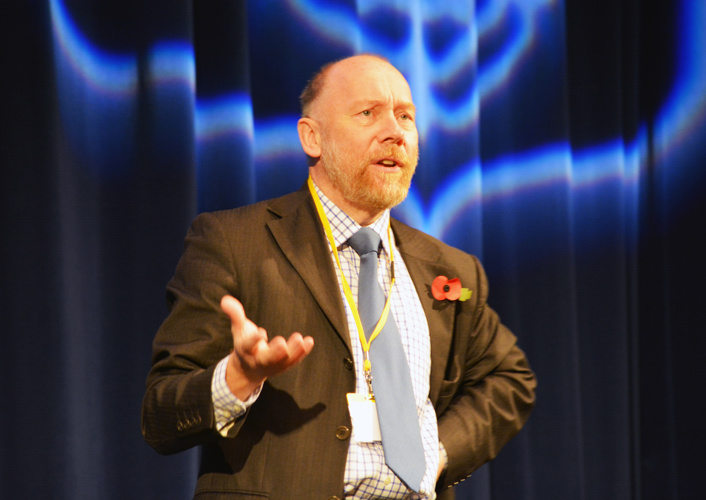Digital Apartheid

Technology expert Ian Yorston predicts a ‘digital apartheid’ in the future: a world where some can code and some can’t . But will those who can code hold all the power? Merry Arnold, ISC’s Communications Officer, reports on the ICT conference…
Ian Yorston is no stranger to the evolution of technology.
A former Electronic Warfare Officer and now Director of Digital Strategy at Radley College, Ian has a long experience of how rapidly technology changes – and last week gave us a glimpse of his vision of the future. In a years’ time, putting on Google Glasses and Apple Watches will be part of our morning routine and, in ten years’ time communicating with robots will be customary.
Ian was speaking at the ISC ICT Conference held last week at Berkhamsted School, for over 100 school leaders, teachers, Directors of ICT and independent sector ICT specialist. The conference, 'Big Money? Big Mistakes? Big Difference?', was an opportunity to ask big questions about how technology currently impacts teaching and learning, how it’s likely to change and how schools will keep up with the growing costs of technology in the classroom.
As a key member of the ISC ICT Strategy Group for independent schools, Ian argued there will be a ‘digital apartheid’. There will be those who code for the computers that control the world and those who undertake the menial tasks that computers cannot. Coding, he said, is the key to the future - and as children will shape the future, we must work out how teachers can best prepare them for it.
Ian compared the divided future world with that of Downton Abbey. Where “people ‘upstairs’ got things done by giving clear instructions, which were carried out by their staff. In future, we will get things done by giving instructions to computers and robots in the form of code."
Away from discussing code, some of the morning breakout sessions explored: leadership, considering how to create digital strategies and incorporating one to one tablets in to schools; teaching and learning in the Key Stage two and three curriculum and the use of Office on iPad. After lunch, while Tricia Kelleher, Principal of the Stephen Perse Foundation (SPF) school took part in the panel debate ’10 ways to make your mistakes cheaper’ in the main auditorium, her colleague Daniel Edwards, Director of Innovation and Learning at SPF, explained how he’s revolutionised teaching in his classroom with the use of simple technology.
Daniel, a former PE teacher, videos his lessons on a tablet. He explained how students “have the freedom to recap or catch up on work and brush up before class, by watching recorded snapshots of lessons through Google Apps for Education. We’re conscious that every lesson, teacher and pupil has different needs and advise teachers to use the right tool for the right job in every environment.”
Keynote speaker Sarah-Jayne Blakemore, from the Centre for Educational Neuroscience at University College London, closed the day by giving a hugely interesting and engaging talk on the adolescent brain and how technology adjusts it as we learn.
Attendees were left with lots to consider – and with slight trepidation of digital apartheid. Teachers today have a big responsibility in choosing how best to prepare pupils for their digital destinies of tomorrow. It’s a big future.
